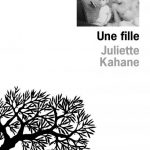On Lolita – Ed Dodson
I first read Nabokov in the summer of 2009, mid-way between my first and second year of studying English at the University of Leeds. Lolita had been on my horizon, but never in my hands, during those opening semesters of undergraduate life; it had not fit into the theoretical mould by which prose fiction had been presented to us. Nonetheless, I was well prepared for the novel’s postmodern tomfoolery, its deceptive and unreliable narrator, and its transgression of art’s ethical boundaries – but not for its tenderness. After a failed attempt, towards the end of the novel, to reclaim the love of his life, Humbert Humbert admits: ‘presently I was driving through the drizzle of the dying day, with the windshield wipers in full action but unable to cope with my tears’ (chapter 29, p.280). Just as the ‘drizzle’ mimicked (and mocked?) his tears, so did Humbert’s match my own.
I had not blubbed at a work of art, or popular culture, for a long time, having acquired the steely academic gaze required (or so I thought) for academic study. I was thus caught out by the soft desperation in Humbert’s otherwise restrained voice as it revealed a brief lack of stability. After all, this was a narrator who’d gripped my head (rather than heart) on the opening page: ‘You can always count on a murderer for a fancy prose style’. His simultaneously ironic and Romantic remark only bore greater levity once that ‘fancy prose’ produced a ‘murderer’ and rapist capable of twisting my emotions. It is this under-discussed quality of Nabokov, his affective as well as cerebral use of irony, which positions him as one of my favourite authors.

